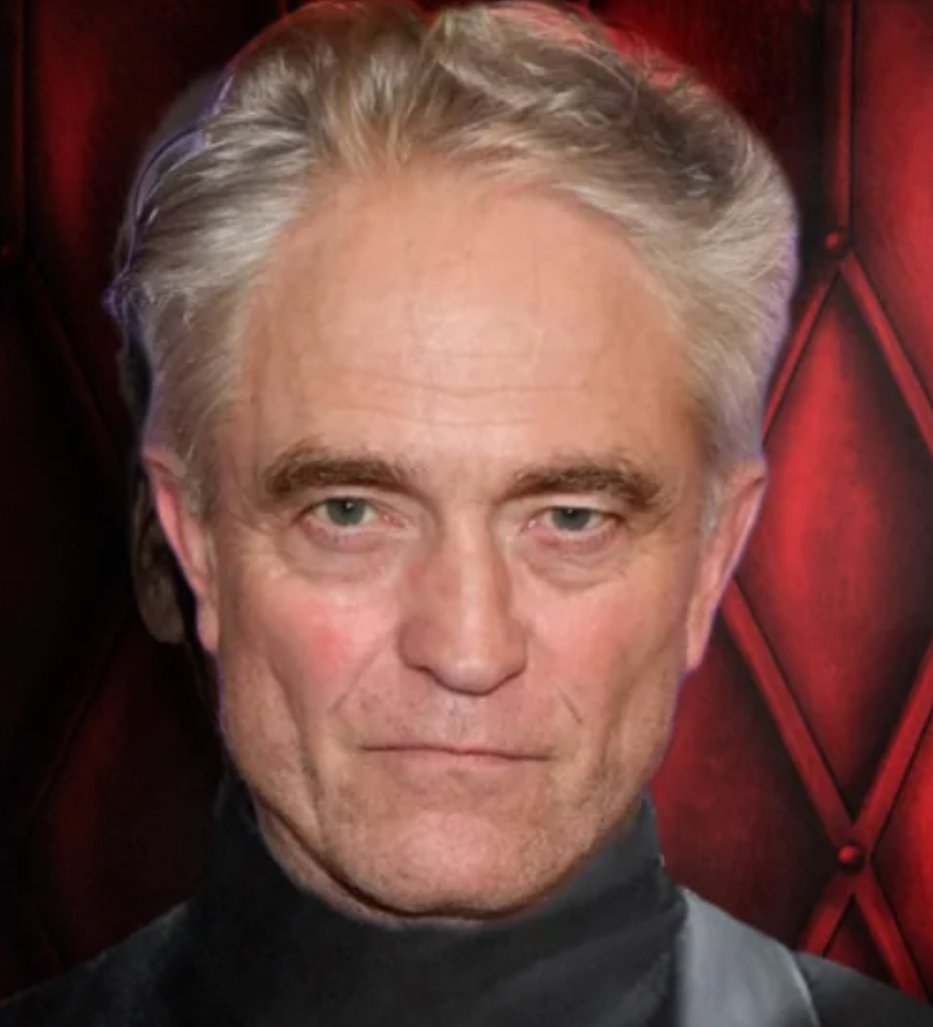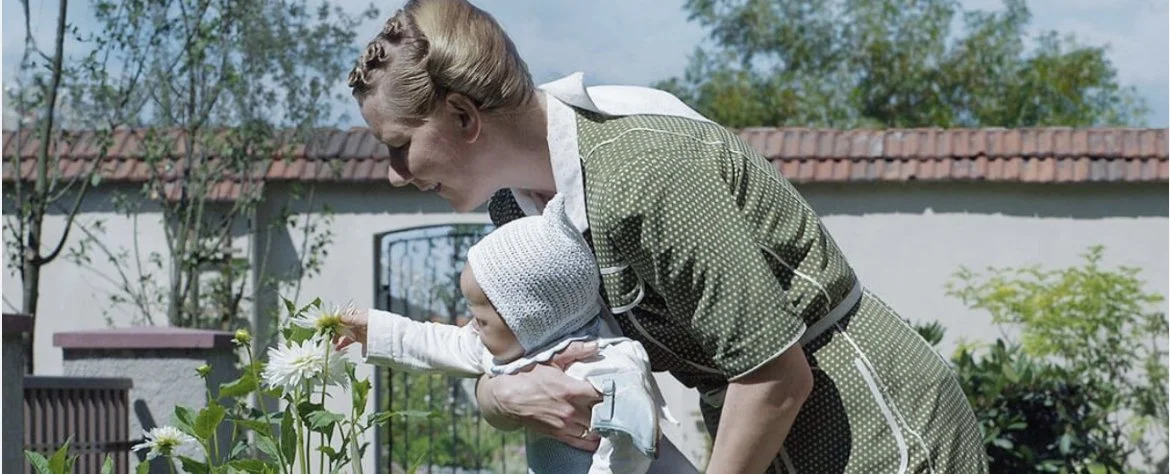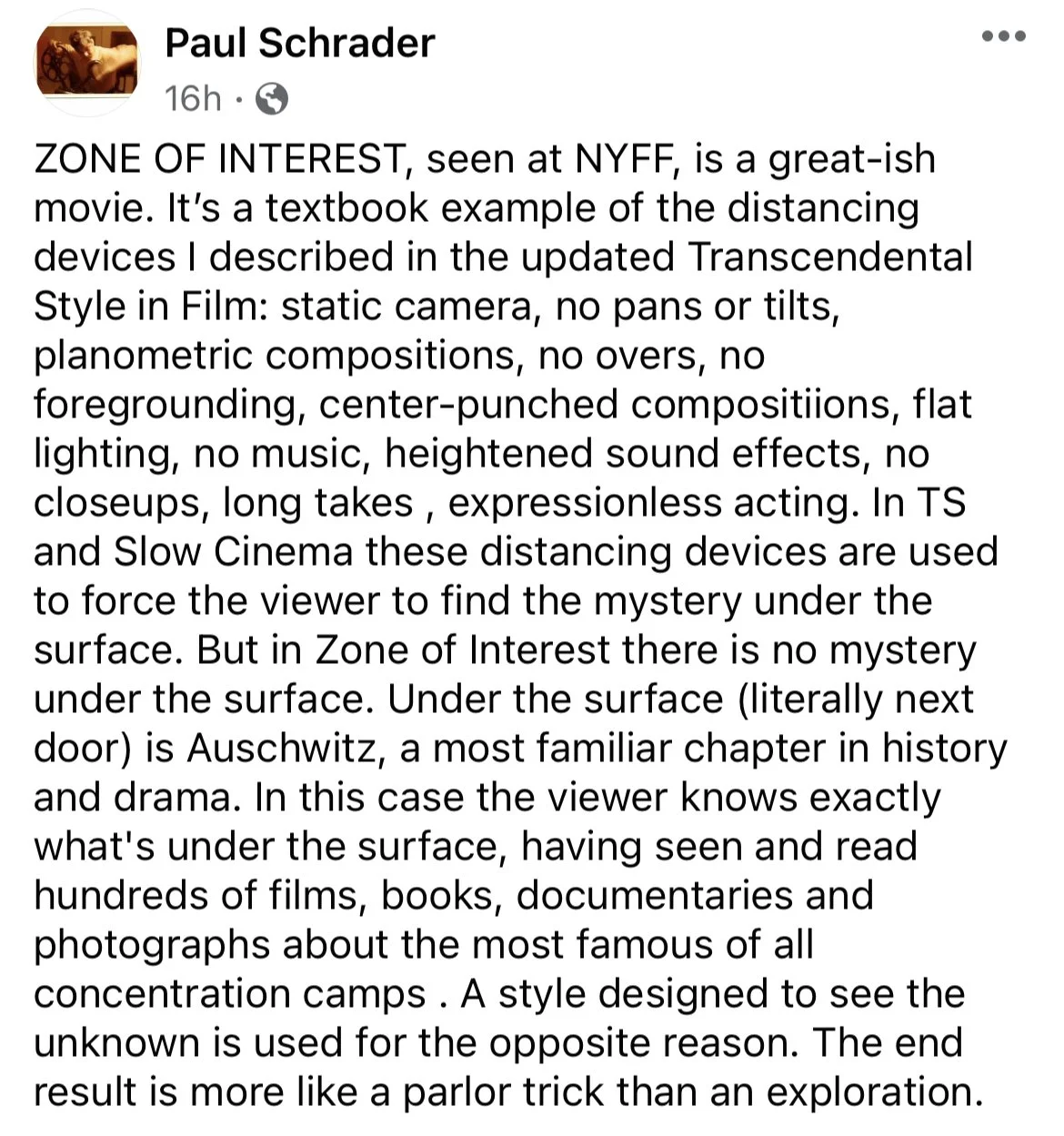I haven’t rewatched Jonathan Glazer’s “The Zone of Interest” since my first and only viewing of it at Cannes this past summer. Anyone looking for the inventiveness of “Under the Skin” will be out of luck, which is not to say that ‘Zone’ isn’t a worthy film — it definitely is.
If you’re looking for visionary daring then the first and last 5 minutes of ‘Zone’ will surely do the trick for you, the rest of the film is slow cinema, meticulously controlled filmmaking that shows the mundane lives of a Nazi family surrounded by horrors and not caring one ounce about it.
Paul Schrader has given his thoughts on the film, which just screened at the New York Film Festival:
I tend to agree with Schrader on this one and notice he does say that the film is “great-ish.” It’s kind of hard not to admire what Glazer has attempted here.
Fact of the matter is that this is an ice-cold art film, through and through. There’s no other way to put it. It's a meticulously delivered and minimalist 104-minute film — a masterfully constructed treatise on, what practically every review is calling “the banality of evil”. It does however leave you feeling very detached and cold. What Glazer has created here is an anti-drama.
Set during the early years of WWII, the film is almost exclusively set at the home of the commander of Auschwitz, Rudolf Höss, following his family who, incredibly, live right next door to a concentration camp. Consider the scene where they swim in their outdoor pool as screams of horror are heard in the background. The Höss’ don’t even flinch, they’re having too much fun in the water.
The film opens with a 3-minute overture in total pitch black and ends with a stunner of a scene. Mica Levi’s score is also astonishingly bleak in its thumping simplicity.
All throughout the film you watch the Höss family, his wife and 5 kids, perform mundane tasks at their home all while cries and gunshots can be heard far away outside in the far background. They seem to be completely unaffected by it.
The film is almost exclusively composed of wide shots, the camera always far away from its subjects. It feels as though a lot of thought and purpose was put into each and every frame by Glazer. It’s almost Kubrickian in its obsessive attention to detail.
Michael Haneke once stated that Hollywood never got the holocaust right on-screen. I do wonder how he would feel about Glazer’s artfully austere approach. What Glazer has proven here is that there are new ways to tell the story of the holocaust.
I gather that some readers have now seen ‘Zone’ at their local film festivals. What are your thoughts on it?







